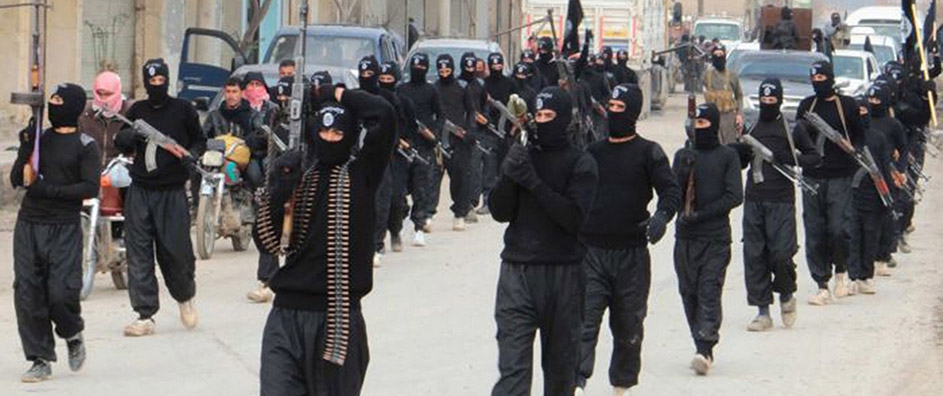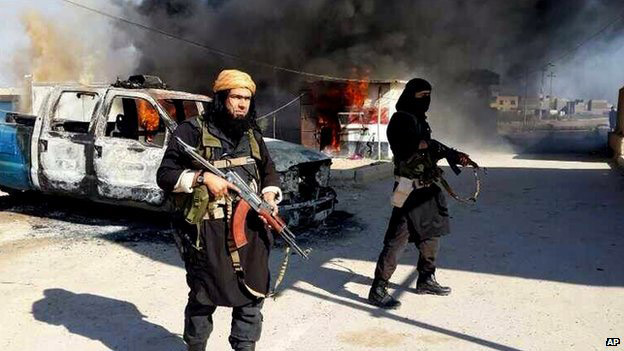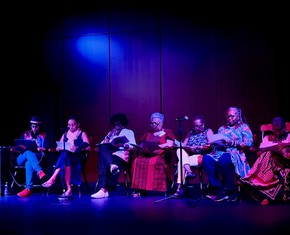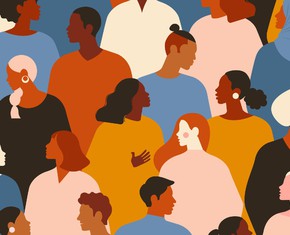The views expressed in our content reflect individual perspectives and do not represent the authoritative views of the Baha'i Faith.
God has endowed us with intellects, not for the purpose of making instruments of destruction; but that we might become diffusers of light; create love between the hearts; establish communion between the spirits and bring together the people of the east and the west. – Abdu’l-Baha, Divine Philosophy, p. 182.
There is nothing so heart-breaking and terrible as an outburst of human savagery! – Abdu’l-Baha, Paris Talks, p. 28.
The world has watched in horror as the ISIS militants from the newly-formed “Islamic State” in Iraq and Syria butcher thousands of people, some of them in videotaped mass murders and beheadings.
In the West, many people who become aware of this kind of savagery blame it on Islamic fundamentalism, and chalk it up to “those crazy Muslims.” Western media outlets rarely cover the millions upon millions of peaceful, devoted Muslims, instead focusing on the very small minority of genocidal armed militants and terrorists who tend to generate the most sensational news. Revolted by the abhorrent, barbaric cruelty of such actions, and unfamiliar with the Islamic teachings of peace and justice, they mistakenly and undeservedly lump all Muslims into one violent fundamentalist category.
If you feel that way, I can understand how you might have developed that feeling. But I’d like to make a case against that kind of reaction, and try to explain why it devalues and destroys the humanity of millions of very good, kind and peaceful people.
First, and most importantly, I want to tell you that human savagery and barbarism do not solely belong to one ethnicity, one nationality or one “religious” group.
Sadly, there is no shortage of proof for that assertion.
The Hutu genocide of the Tutsi in Rwanda in 1994; the Nazi genocide in the 1930’s and 40’s; the Khmer Rouge genocide of Cambodia’s intelligentsia in the 1970’s; the American and Canadian genocide of the Indians; the Serbian genocide against Kosovo in the 1990’s—all of these examples prove that human savagery can’t be confined to one group. Hundreds of other examples exist. Brutal, savage and inhumane massacres, whether they take place in one hour or one day or over the course of a century, aren’t the sole purview of Muslims or Christians or Jews or Buddhists—they cross all barriers and, through the course of human history, almost all groups have been either perpetrators or victims.
If we can’t trace such terrible outbreaks of savagery to any particular ethnicity, religion, nationality, racial group or political ideololgy, where does it come from? And if it potentially comes from inside everyone, what does that say about us? And if we all have the potential for savagery, what can we do about it?
Professor Ian Robertson, who teaches psychology at Trinity College in Dublin, Ireland, and was the founding director of the Trinity College Institute of Neuroscience, has studied the origins of human savagery, and in his research he found that it cannot be traced to any one religion or ideology. In fact, Professor Robertson says, as human beings we are all potentially subject to savage, inhuman behavior ourselves. The main causes of savagery, Robertson’s research indicates, include these five factors:
1 – Savagery begets savagery
2 – Submersion in the group
3 – The out-group as objects
4 – Revenge
5 – Leaders
In this short series of essays, we’ll examine those five causes of savagery, explore how they can develop and metastasize, and then look at them through the spiritual, humanitarian lens of the Baha’i teachings, which further explain how to understand savagery and what we can do to stop it.
Professor Robinson says:
The first part of an answer may be horribly simple: savagery begets savagery. Callousness, aggression and lack of empathy are common responses by people who have been harshly treated themselves. In the Nazi concentration camps, for instance, many of the cruellest guards were themselves prisoners – the notorious “kapos”. Sexually abused children – particularly males – are more likely to go on to become sexual abusers themselves as adults, although the majority do not. Victims, in other words, often respond to trauma by themselves becoming victimisers.
The abused, in other words, often become the abusers. When you have endured terrible treatment or violence or war or inhumane conditions in life, you are more likely to be de-sensitized to those things and visit them upon others. Research shows that between thirty and forty percent of those abused as children become abusers as adults.
That statistic holds both pain and hope. It tells us that stopping the cycle of savagery and abuse can be a difficult, multi-generational task; but it also tells us that human beings can consciously stop the cycle, and that many succeed.
You May Also Like
Comments


















In driving class I remember that the instructor said,"You may have fantastic reaction times for the accident in front of you, but the driver behind you probably doesn't and when he slams into your rear, it may be equal to the accident you believed you avoided in front of you."
It is clear that the major plan of God is at work in these issues. We must try not to fall into the trap of pretending something other than this process is at the heart of these things in the world. This process is decades upon decades in its length. With the lesser peace as its destined out come. I would suggest a series on the major plan of God to explain the true nature of all of these happenings. With the Major Plan of God connections to the lesser plan of God. These two process are ...key to understanding the times we are living in. As well as our vision for the future, that depends upon the destiny of the major plan and its impact on humanity.
Kind Regards
"We are told by Shoghi Effendi that two great processes are at work in the world: the great Plan of God, tumultuous in its progress, working through mankind as a whole, tearing down barriers to world unity and forging humankind into a unified body in the fires of suffering and experience. This process will produce in God's due time, the Lesser Peace, the political unification of the world. Mankind at that time can be likened to a body that is unified but without life. The second process, the task of breathing life into this unified body -- of creating true unity and spirituality culminating in the Most Great Peace -- is that of the Bahá'ís, who are labouring consciously, with detailed instructions and continuing divine guidance, to erect the fabric of the Kingdom of God on earth, into which they call their fellowmen, thus conferring upon them eternal life."
(The Universal House of Justice, Messages 1963 to 1986, p. 126)